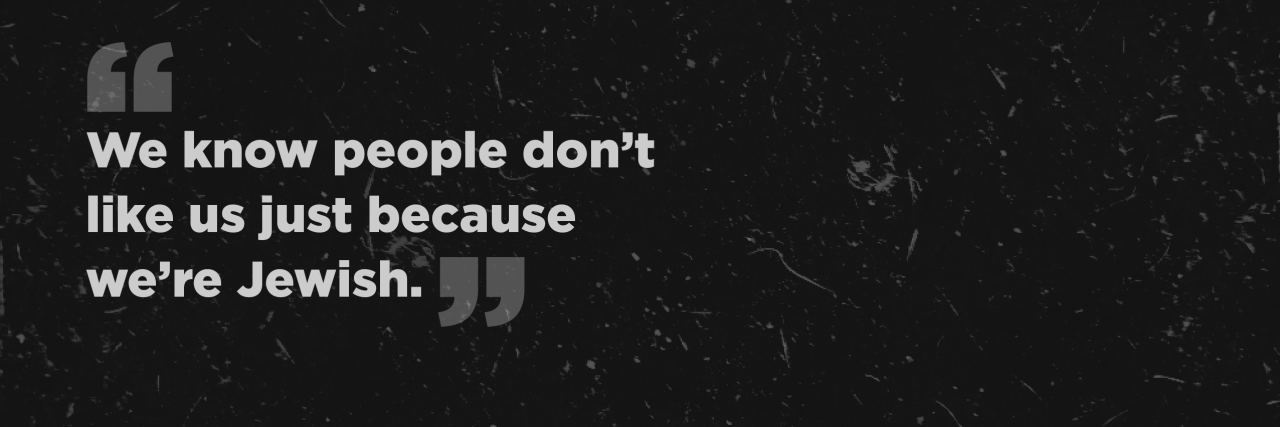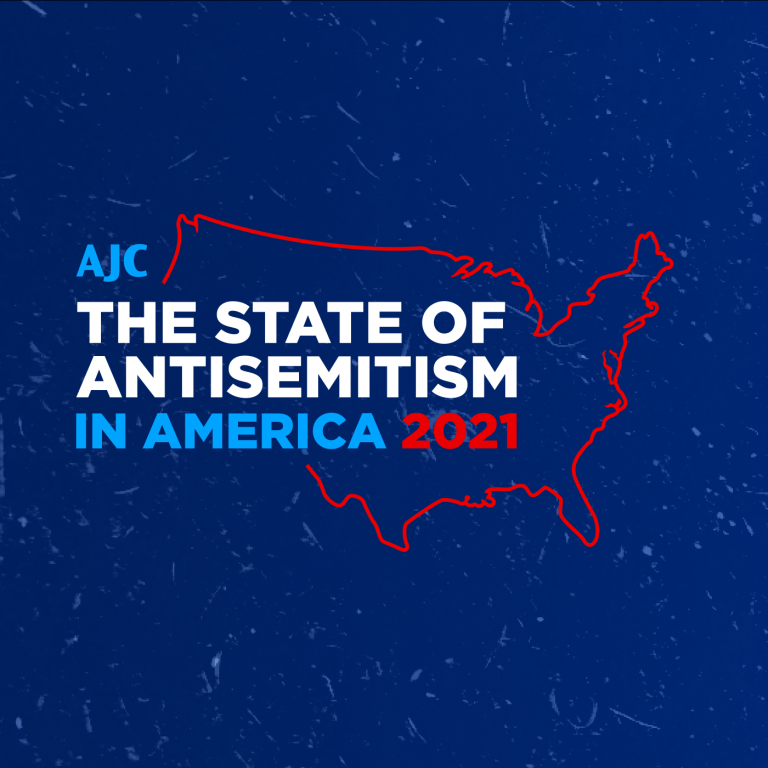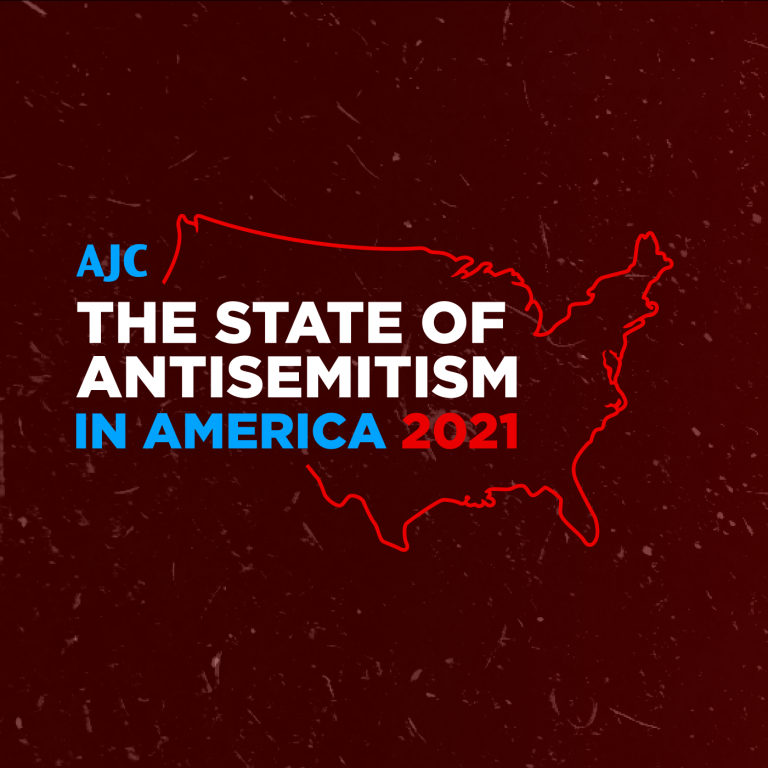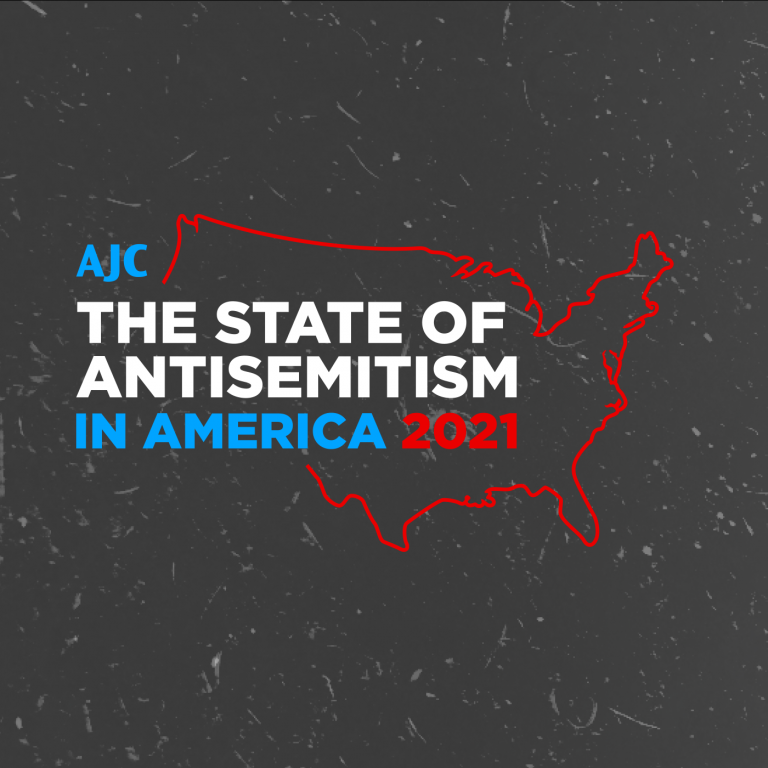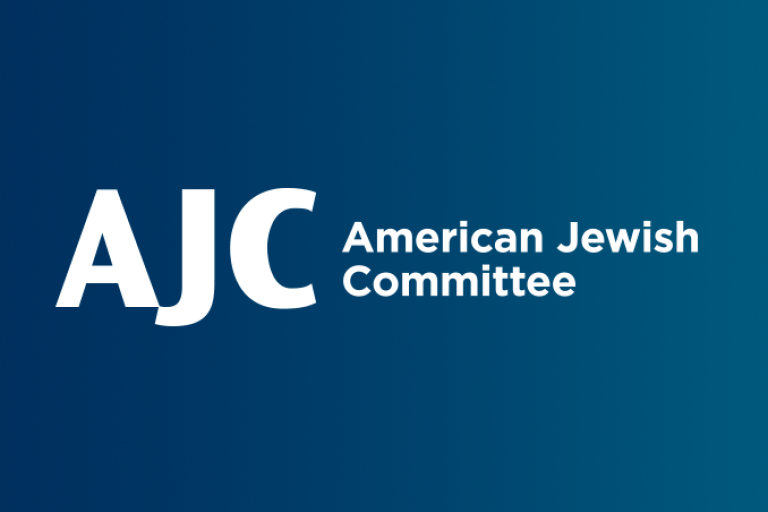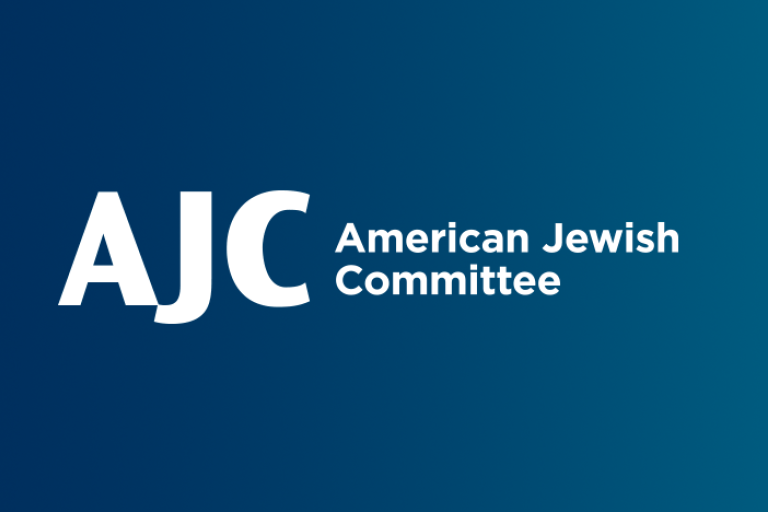October 25, 2021
Jewish diners at a sushi restaurant in Los Angeles were brutally beaten by a mob chanting “Death to Jews.” A Jewish man wearing a yarmulke in New York’s Times Square was mauled and maced by thugs who called him a “Dirty Jew.” A rally for peace in Boca Raton, Florida was harassed by white supremacists in a van painted with the phrases “Holocaust never happened” and “Hitler was right.”
These were just a few of the antisemitic incidents that targeted American Jews in the month of May alone. In fact, according to the latest annual State of Antisemitism in America Report released by American Jewish Committee (AJC) on October 25, 2021, one out of every four Jews (24%) encountered antisemitism in the last 12 months. It also found a wide perception gap between American Jews and the public – 82% of American Jews believe hatred against them has been on the rise, but only 44% of their fellow Americans agree.
Lack of awareness could be to blame. The survey found that most Americans knew little to nothing about the spike in attacks on American Jews tied to the Hamas-instigated conflict with Israel in May, even though the majority of American Jews (72%) who had heard about the spike felt less safe as Jews in the U.S.
Here are four stories that illustrate some of the report’s troubling findings.
‘Shut up, Jew’
In the last 12 months alone, 12% of American Jews have been targeted by antisemitism online. Of those victims, 55% said they were targeted on Facebook, 35% on Twitter, 11% on YouTube, and 10% on Instagram; and most of them did not report it the platform, law enforcement, or a Jewish organization.
Because her father had faced antisemitism as a child, the extent of Aubrey Golding’s Jewish upbringing was celebrating Hanukkah and Passover with grandparents. But in college, Aubrey began to explore her Judaism and eventually became Shomer Shabbat. When she brought her observance into the family’s home, her teenage brother became curious too.
Then last December Aubrey, 23, of Los Angeles, received a disturbing Instagram message from a mysterious sender – a meme of Hitler clutching a gun captioned “Shut up Jew” and a picture of her brother captioned “all time prettiest Jew.” Her brother immediately dismissed it as a childish prank. She did not see the humor.
“I said ‘This is a blatant act of antisemitism. Unless someone wants to come forward and apologize, we’re going to have a real problem,’” she recounted.
A little sleuthing helped Golding identify the culprit, but because he’s a friend of her brother's, she has not reported it to the social media platform or to law enforcement. Instead, while she waits for an apology, she has turned her Instagram account into a news feed of sorts.
“I started resharing posts about antisemitic incidents,” she said. “It was clear his friends had some internalized antisemitic feelings. I wanted to make it glaringly clear the reality of what was going on in the world so they couldn’t remain ignorant… What it is to be a Jew, right?”
‘We were still celebrating Shabbat. They weren’t going to be able to stop that.’
Nearly one in four American Jews said their institutions have been targets of antisemitic attacks, graffiti, or threats. Of the American public, 41% said they had witnessed antisemitism in the past year, either online or in person.
Matt Walzer was home with his family on the Thursday night after Rosh Hashanah when he got a call that his suburban Minneapolis synagogue could be in danger. The violent threats against Beth El in St. Louis Park, Minnesota had been alarmingly specific. As managing director, Walzer stayed on the phone with law enforcement and staff until 3 a.m. putting a plan in place to close the school and shift Shabbat services online.
“We were not closing, we were closing the building,” Walzer said. “We were still celebrating Shabbat. They weren’t going to be able to stop that.”
Earlier that week, dozens of headstones had been turned over in a nearby Jewish cemetery. Walzer knew even if the threats just intended to create hysteria, someone had targeted the Jewish community with ill intentions.
“Who knows when you have no face, no name, no voice, nothing but typed letters,” he said. “We couldn’t take any risk or put anyone in harm’s way.”
Turnout for cyber shul that weekend was higher than usual, reminding Walzer of Show up for Shabbat, a movement started by AJC to fill pews across the country after the Tree of Life synagogue shooting in Pittsburgh. The congregation also didn’t stay away from Yom Kippur services six days later. But Walzer was particularly moved by the response from interfaith neighbors.
“A lot of the outpouring of love we got was from the non-Jewish community,” he said. “That comes from a place of not knowing what it’s like to have these types of threats. We’re used to it … The Jewish community is used to antisemitism. We know people don’t like us just because we’re Jewish … It’s just part of what we deal with.”
‘Hitler Was Right.’
Fears of antisemitism prevented one in five American Jews from publicly wearing, carrying, or displaying things that identify them as Jewish and 17% avoided certain places, events, or situation out of concerns for their safety.
Remi Franklin of Los Angeles always knew antisemitism existed. As a child, the 37-year-old Brazilian jiu jitsu artist had been called a kike and a bagel. But when a mob chanting “Death to Jews” came looking for a fight at a Los Angeles sushi restaurant in May, Franklin immediately channeled his anger and frustration into fighting back.
“When physical violence took place, that was the first time I put together a crew to make sure people were protected,” he said.
Using social media, he mobilized dozens of former military servicemen and martial artists across the country to escort observant Jews to school and shul. When anti-Israel protesters dared to yell “All Jews should die!” and “Hitler was right!” as people walked to and from worship, Franklin and his fellow bodyguards responded.
“They thought twice when we yelled back, because I wasn’t silent,” Franklin said. “’Why are you screaming Free Palestine! at a bunch of children?’ We did the best we could to make sure people were protected. We became a high-level version of deterrence.”
A rabbi dubbed the escorts "Shabbat Angels," inspired by a story in the Talmud about the two spiritual companions who accompany Jews home from synagogue on Friday night – a reminder that Sabbath is more than just a day of rest, it’s a sacred observance.
Franklin sang a line from Shalom Aleichem, the traditional song Jews sing on the eve of Shabbat to welcome the angels. He noted that Orthodox Jews sing it without fail every Friday, just as they follow all the commandments, despite the antisemitism they face every day.
“The level [of antisemitism] the Orthodox community faces walking down the street on a daily basis, this is unfortunately how they have to live their lives,” Franklin said. “We’re all Jews. Regardless of looks, a person with pe’ahs and a beard is still part of our family. Jews (who aren’t as visible) say ‘This can’t happen to me’ until it does.”
“Antisemitism is alive and well,” he added. “All we can do is continue to fight it and combat it.”
‘I wear a gun to shul now’
Of those Americans who expressed some familiarity with the Boycott, Divestment, and Sanctions (BDS) movement against Israel, 82% of Jews and 63% the U.S. general public said the movement is either antisemitic as a whole or has antisemitic supporters, with under 15% saying the movement is not antisemitic.
Ari Hoffman ran for Seattle’s City Council in 2019 to help solve the city’s homeless crisis and opioid epidemic. As a board member of the local Orthodox Jewish cemetery, he had discovered it became a campground every night and a haven for illegal drug activity.
During the campaign, someone posted messages on the far-right forum 8chan, suggesting Hoffman and the Israeli flag outside his home should be burned. Opponents in the race condemned the posts and eventually so did the mayor. But just as disturbing as the threats was the silence from city council members who always had been quick to condemn other forms of racism.
Since losing the election, he now sees antisemitism permeating the very council on which he would have served. This summer, one city council member backed an effort by protestors to block the Port of Seattle from unloading an Israeli ship, as part of the Boycott, Divestment, and Sanctions (BDS) movement.
And in September, the council narrowly defeated a bill that would have ended a training program that allows American and Israeli police officers to learn about counterterrorism, community policing, and other de-escalation tactics. Anti-Israel activists have inaccurately dubbed the program Deadly Exchange, perpetuating the false narrative that Jews contribute to systemic racism and police brutality in the U.S. But the program is especially valuable for Seattle, where the tech industry and military installations make it a target, Hoffman said.
“Preparing for a terrorist attack is something you should be thinking about and who are the experts?” he said, referring to the expertise in Israel.
Hoffman, who grew up in suburban New York, confronted antisemitism as a kid. He recalls neo-Nazis dumping a slushie over his head when he was a teenager and hearing slurs at tennis camp. But he had never encountered the hatred in Seattle until it became couched in Israel.
“When you let people rip for hours in public comment against Jews without shutting them down, that’s beyond anti-Israel. That’s antisemitic,” he said, referring to city council meetings about the law enforcement training program. “Why are you discussing Israel? You can’t control the crime or the out-of-control homeless problem, and you’re worried about what’s going on in Israel?”
Now the antisemitism seems darker and more dangerous, he said, which is why he did something two years ago that he never thought he would do: “I wear a gun to shul now.”
